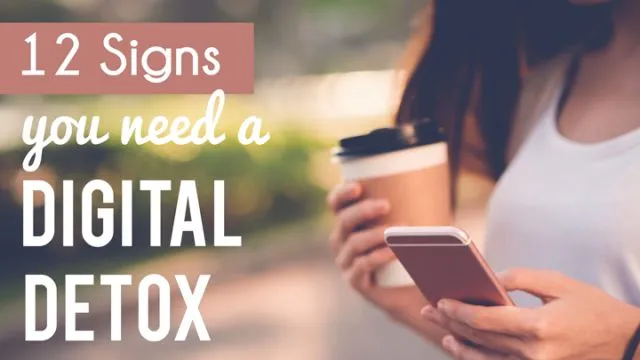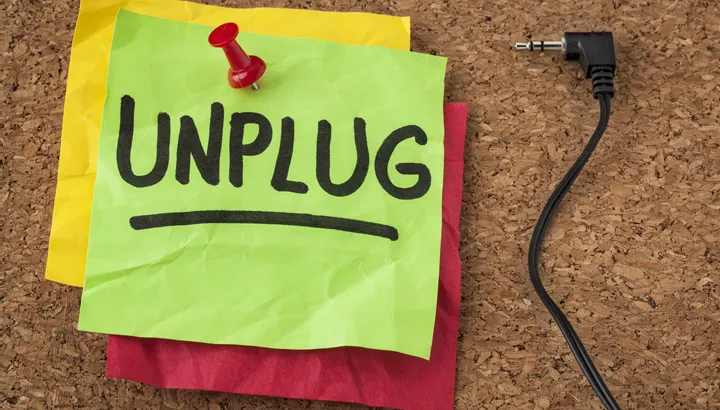
- Share on Facebook69
- Share on Pinterest
- Share on Twitter
Back in the day, taking a phone call late into the evening meant one thing — emergency. Now it’s commonplace to receive and send text messages, emails and check social media feeds throughout the night. If finding time to exercise, meditate, see a movie, read a book, visit friends or even take a nap is a struggle, then maybe it’s time for a digital detox. And if that sends you in panic mode, then you definitely need to detox. Here are 12 more signs that point in that direction.
 1. Do you charge your phone before going to bed in case you get a late-night text?
1. Do you charge your phone before going to bed in case you get a late-night text?
2. Do you sleep with your phone?
3. Does your phone sit on the table while you eat your breakfast, lunch or dinner?
4. Do you check your email and social feeds throughout every meal?
5. Does the thought of shutting down your phone, tablet or computer for an extended amount of time make your heart race?
6. Are you frustrated with spending so much time online, and accomplishing little else?
7. Does your partner, kids or friends complain they never have your full attention because your phone is a continual distraction?
8. Have you put your favorite hobbies on hold because your spare time is spent online?
9. Do you rarely read an article from beginning to end?
10. Do you suffer from dry and itchy eyes, blurred vision, general fatigue, back pain, neck pain and headaches often?
11. Do you go into panic mode when your phone dies?
12. Does social media make you feel negative about your own life?
Disconnect and reconnect
Chances are, you answered “yes” to some of those questions. But there’s a good chance you also answered “yes” to all of those questions — and you wouldn’t be alone.
Digital detox means switching off all mobiles, smartphones, tablets, laptops and computers for a certain length of time. Not answering emails, text messages and yes, even staying clear of your laptop, allows you to spend screen-free time doing whatever it is you enjoy. A digital detox gives you a chance to rest your brain and recharge your spirit.
Research shows that the more time you spend on computers and phones the more weight you’ll gain. Weight gain is not just about being more sedentary — thanks to sitting in front of the computer— it’s also a reflection of the negative effect digital technology plays on your sleep cycles.
How to get started
- Detoxing from your digital world might include taking short technology breaks throughout the day. Or, you could take longer breaks — a few hours or more — each day.
- Tell family, friends and coworkers when you’re unreachable. Just because you’re offline doesn’t mean you can’t communicate when you’ll be back online.
- Tell VIPs how to reach you, says PC magazine (i.e. by phone call in case of emergency, rather than text). You should still be reachable to very important people in your life.
- Pick a dedicated place to store your phone while you’re taking a break from technology. Putting your phone away tells family and friends that you are paying attention to them, and that they are more important than incoming messages.
It’s not just about unplugging devices, it’s about rediscovering what happens when you plug back into life. Disconnecting devices, allows you to reconnect with yourself, your family, your community, nature and even the world. Digital detoxing is less about detachment from technology, but rather, a break from technology. Use that time to nurture yourself and just have fun.
— Katherine Marko
- Share on Facebook69
- Share on Pinterest
- Share on Twitter

